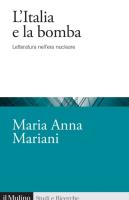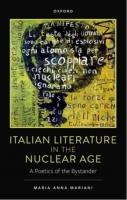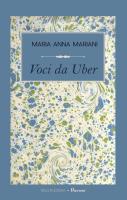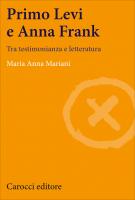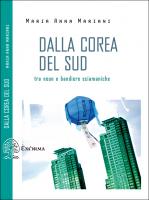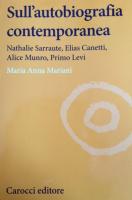I am a specialist of Modern Italian Literature (19th- 21st Century), and memory and form are at the heart of my scholarship. The relationship between memory and form is declined in a variety of ways in my publications, which range from autobiography to Holocaust testimony, from fictional accounts of historical catastrophes to meditations on one’s own terminal illness. In all these writings, I am concerned with a network of recurring problems: the structural equivalence between the activity of telling a story and memory’s ability to shape time; the unsettling relationship between testimony and survival; the artistic representations of historical catastrophes—and the ethics of such representations; the narrative shape of personal traumas; and the limit cases of what can be thought and shown.
My first book, Sull’autobiografia contemporanea (Carocci, 2011), examines contemporary autobiography through the lens of memory and mimesis. My second, Primo Levi e Anna Frank: tra testimonianza e letteratura (Carocci, 2018), investigates the fraught interplay of testimony and fiction in the works of Primo Levi and Anne Frank.
My most recent book, Italian Literature in the Nuclear Age: A Poetics of the Bystander (Oxford University Press, 2022; winner of the MLA Aldo and Jeanne Scaglione Prize for Italian Studies), explores the overlooked figure of the bystander in the Nuclear Age, taking Italy as a paradigmatic case. Inspired by Seamus Heaney’s dictum that “there is no such thing as innocent by-standing,” the book reflects on how Italy’s historical mix of implication and powerlessness reshapes the role of the sidelined intellectual in an era of mass extinction. The Italian edition, L’Italia e la bomba: letteratura nell’era nucleare, was published by Il Mulino in 2025.
My current book project, As I Write Dying: Memoirs of the End, traces the rise of a striking new literary form: the real-time memoir of terminal illness. Since the 1990s, authors such as Christopher Hitchens, Oliver Sacks, and Jenny Diski have chronicled their dying in serialized essays for major periodicals including The New Yorker, Vanity Fair, and The Guardian. These “memoirs of the end” disrupt the longstanding philosophical claim that one’s own death cannot be narrated, while revealing how modern medicine and media reshape the experience of mortality. Unlike traditional illness memoirs centered on survival, they confront the approach of life’s end itself, transforming autobiography into autothanatography. Bringing together literary, cultural, and philosophical perspectives, the book reveals how this genre gives narrative form to dying and restores mortality to the center of public and literary imagination.
Throughout my career, I have worked to reach a broader readership, publishing books and articles that bridge academic and non-specialist audiences. In the fictionalized reportage Dalla Corea del Sud (Exòrma, 2017), I recount five years living in a South Korean dorm for international university teachers, reflecting on how “negative nationality” fosters an affective bond among global resident aliens. In 2019, I published the hybrid nonfiction book Voci da Uber (Mucchi), which explores the communicative genre shaped by Uber rides—a space where small talk shades into confession. Composed of micro-narratives drawn from conversations in Chicago ride-shares, the book offers storytelling as a counter to the reifying logic of ratings and evaluation that defines the sharing economy.
Recent Courses in RLL
- ITAL 21820/31820 Italo Calvino: the Dark Side (Winter 2018, Winter 2021, Winter 2024, Autumn 2025)
- ITAL 22560 Poetic Postures of the Twentieth Century (Winter 2020, Spring 2022)
- ITAL 23200 Children's Literature as an Avant-Garde (Autumn 2023)
- ITAL 23410 Reading and Practice of the Short Story (Autumn 2016, Autumn 2017, Autumn 2019, Autumn 2022, Autumn 2025)
- ITAL 24920/34920 Primo Levi (Autumn 2017, Autumn 2020, Winter 2025)
- ITAL 24930/34930 Italy and the Bomb (Winter 2017, Autumn 2019, Autumn 2022)
- ITAL 25210 Brevitas (Autumn 2020, Winter 2022)
- ITAL 27600 Beyond Ferrante: Italian Women Writers Rediscovered and the Global Editorial Market (Winter 2023)
- ITAL 35210 Theories of Autobiography (Autumn 2016)

